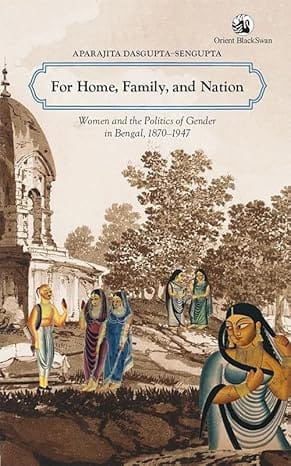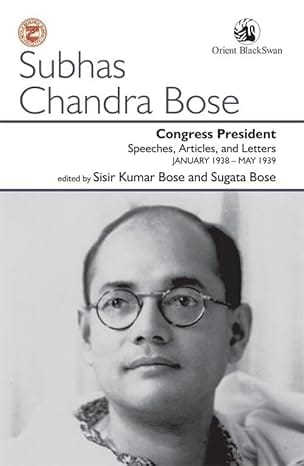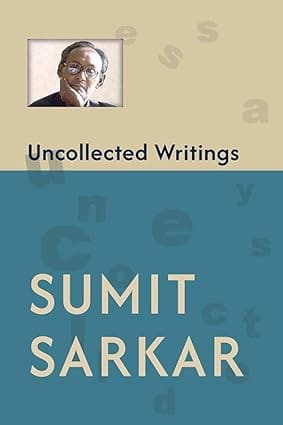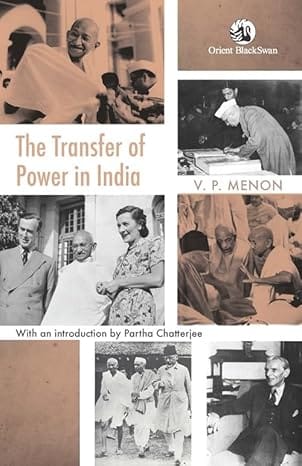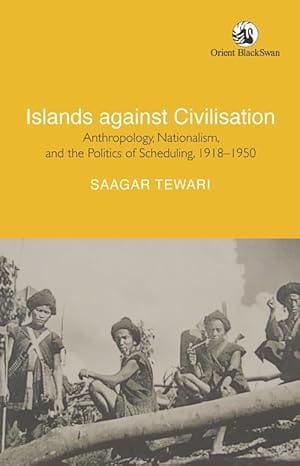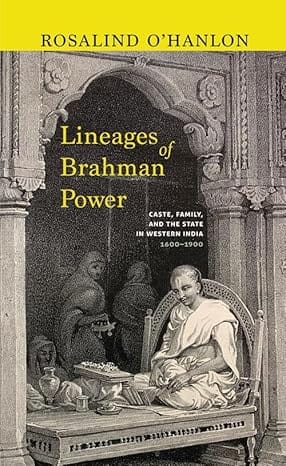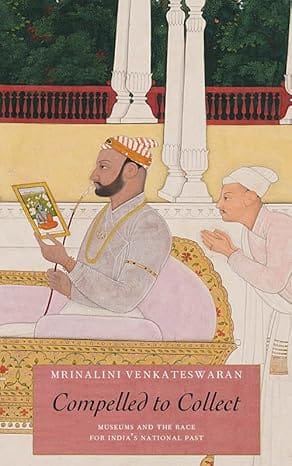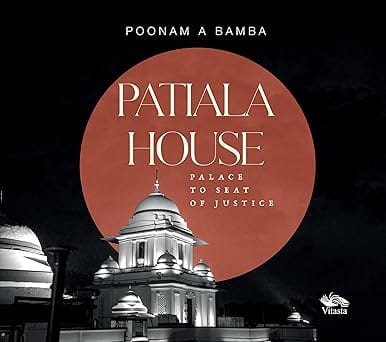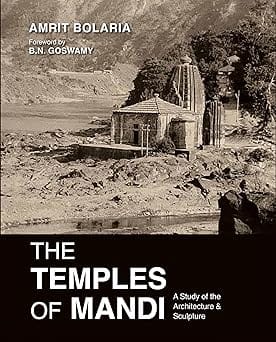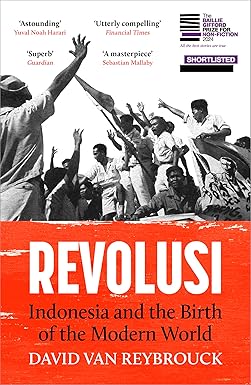WELCOME TO MIDLAND BOOK SHOP!
SHOP FOR
- Non-ficton
- Non-ficton
- Contemporary Fiction
- Contemporary Fiction
- Children
- Children
- Comics & Graphic Novels
- Comics & Graphic Novels
- Non-Fiction
- Non-Fiction
- Fiction
- Fiction
Shop No.20, Aurobindo Palace Market, Hauz Khas, Near Church +91 9818282497 | 011 26867121 110016 New Delhi IN
Midland The Book Shop ™
Shop No.20, Aurobindo Palace Market, Hauz Khas, Near Church +91 9818282497 | 011 26867121 New Delhi, IN
+919871604786 https://www.midlandbookshop.com/s/607fe93d7eafcac1f2c73ea4/677cda367903fd013d69b606/without-tag-line-480x480.png" [email protected]9789354429187 6897347cd9b0f879e93e4405 For Home, Family, And Nation Women And The Politics Of Gender In Bengal, 1870-1947 https://www.midlandbookshop.com/s/607fe93d7eafcac1f2c73ea4/6897347dd9b0f879e93e440d/61yayptqfyl-_sy466_.jpg 9789354429187
The lives of the bhadramahila (generally, upper-caste educated women) and the rise of the ‘New Woman’ in late-colonial Bengal has attracted significant critical interest. However, For Home, Family, and Nation, is the first full-length study to focus on the evolution of gender issues in nationalist politics in Bengal and study the complex relationship between feminism, nationalism, and communalism, over a period of eight decades, from the 1870s onwards. Thisbook examines the flexibility of this strand of nationalist thought, which constantly adjusted to new methods of selection and appropriation. It shows how the nineteenth-century nationalist ‘resolution’ of ‘the woman question’ accommodated material and political changes in the twentieth century, against a backdrop of growing economic crisis, rising unemployment, declining public health, rural degeneration, the dislocation of war, and the increasing participation of women in employment and politics. It demonstrates how gender politics, among the bhadralok—Bengal’s educated Hindu and primarily upper-caste middle classes—transformed from a movement against colonial interference in the ‘private sphere’ to a communally charged campaign to protect Hindu women from the ‘Muslim threat’. In lucid prose, the author delves into women’s writings, and critically examines elite perceptions in contemporary journals, newspapers, and popular politics in the pulp literature from Battala, to offer important insights, not only into the changing self-image of the bhadralok but also to show how the bhadramahila adapted to, or resisted, such discursive constructs. Tracing the reconstitution of the controversial figure of the late-nineteenth century ‘New Woman’ into the ‘modern’ women of today, this book breaks new ground in the fields of history, gender studies, and South Asian studies. It will also captivate scholars of sociology, cultural studies, literary and critical studies, and general readers.
in stockINR 1068
1 1
Email ID already exists!
Your Current password is incorrect
Password Updated Successfully
Thanks for your Feedback
For Home, Family, And Nation Women And The Politics Of Gender In Bengal, 1870-1947
ISBN: 9789354429187
₹1,068
₹1,335 (20% OFF)SIZE GUIDE
Sold By: Hauz Khas - Aurobindo Market
Details
- ISBN: 9789354429187
- Author: Aparajita Dasgupta-sengupta
- Publisher: Orient Black Swan
- Pages: 472
- Format: Paperback
Book Description
The lives of the bhadramahila (generally, upper-caste educated women) and the rise of the ‘New Woman’ in late-colonial Bengal has attracted significant critical interest. However, For Home, Family, and Nation, is the first full-length study to focus on the evolution of gender issues in nationalist politics in Bengal and study the complex relationship between feminism, nationalism, and communalism, over a period of eight decades, from the 1870s onwards. Thisbook examines the flexibility of this strand of nationalist thought, which constantly adjusted to new methods of selection and appropriation. It shows how the nineteenth-century nationalist ‘resolution’ of ‘the woman question’ accommodated material and political changes in the twentieth century, against a backdrop of growing economic crisis, rising unemployment, declining public health, rural degeneration, the dislocation of war, and the increasing participation of women in employment and politics. It demonstrates how gender politics, among the bhadralok—Bengal’s educated Hindu and primarily upper-caste middle classes—transformed from a movement against colonial interference in the ‘private sphere’ to a communally charged campaign to protect Hindu women from the ‘Muslim threat’. In lucid prose, the author delves into women’s writings, and critically examines elite perceptions in contemporary journals, newspapers, and popular politics in the pulp literature from Battala, to offer important insights, not only into the changing self-image of the bhadralok but also to show how the bhadramahila adapted to, or resisted, such discursive constructs. Tracing the reconstitution of the controversial figure of the late-nineteenth century ‘New Woman’ into the ‘modern’ women of today, this book breaks new ground in the fields of history, gender studies, and South Asian studies. It will also captivate scholars of sociology, cultural studies, literary and critical studies, and general readers.
User reviews
NEWSLETTER
Subscribe to get Email Updates!
Thanks for subscribing.
Your response has been recorded.

India's Iconic & Independent Book Store offering a vast selection of books across a variety of genres Since 1978.
"We Believe In The Power of Books" Our mission is to make books accessible to everyone, and to cultivate a culture of reading and learning. We strive to provide a wide range of books, from classic literature, sci-fi and fantasy, to graphic novels, biographies and self-help books, so that everyone can find something to read.
Whether you’re looking for your next great read, a gift for someone special, or just browsing, Midland is here to make your book-buying experience easy and enjoyable.
We are shipping pan India and across the world.
For Bulk Order / Corporate Gifting
 +91 9818282497 |
+91 9818282497 |  [email protected]
[email protected]
Click To Know More
INFORMATION
QUICK LINKS
ADDRESS
Midland Book Shop - Hauz Khas
Shop No.20, Aurobindo Palace Market, Near Church, New Delhi
Shop No.20, Aurobindo Palace Market, Near Church, New Delhi

